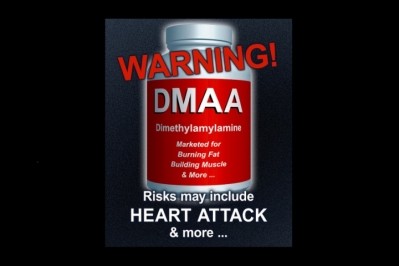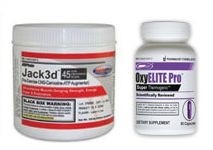Hi-Tech sues FDA over 'bullying campaign'

The suit takes FDA to task over its classification of DMAA as both an unlawful dietary ingredient and one that, even if it were lawful, would require a New Dietary Ingredient notification.
"DMAA has existed in the food supply for many years," the complaint states. "Hi-Tech has sold over a million bottles of dietary supplement products containing this ingredient without any adverse event reports."
In the suit, Hi-Tech revisits the issue of whether DMAA is a natural constituent of geranium. The first company to bring DMAA to market in a big way—USPlabs—first claimed this to be true and based its conclusion on the controversial Ping study, named after its shadowy first author. The suit references another study that was commissioned by USPlabs conducted by regulatory and testing consulting firm Intertek Cantox that the suit says “confirmed the presence of DMAA in the geranium plant.”
Other sources have disputed that finding. A combined US Army/NSF International study concluded the the compound is not found in geranium. The Army’s interest in the issue stems from the deaths of four soldiers who had DMAA in their bloodstreams at the times of their deaths. A subsequent Department of Defense review of the ingredient concluded that while it poses potential health risks, it could not be causally related to the deaths.
Synthetic botanical question
The question of whether the ingredient is found in geranium is the basis for the next part of Hi-Tech’s argument, which is that the agency went beyond statutorial bounds when it disallowed so-called “synthetic botanical” ingredients in the draft NDI guidance. The suit repeats some of the arguments made at the time of the first release of the draft guidance in 2011. Comments at the time questioned why synthetic vitamins have long been accepted as legal dietary ingredients. If a synthesized version of a molecule perfect matches that which can be extracted from a plant, why does it matter how it was made. FDA’s stance in unequivocal: molecules that did not have their origin in plants do not fit the description of a dietary ingredient.
Hi-Tech claims the FDA's efforts to eradicate DMAA from the market exceeds its authority and violates the Administrative Procedures Act. "Under the pretext that DMAA-containing products pose a danger to consumers, the FDA has engaged in a campaign of intimidation against dietary supplement companies like Hi-Tech who include this ingredient in their products," Hi-Tech says in its lawsuit. "For some companies this has taken the form of warning letters and pressure by the FDA to remove and destroy DMAA containing products. In the case of Hi-Tech, the FDA has issued an administrative detention order against numerous proprietary dietary supplement products without notice, essentially removing millions of dollars in goods from the marketplace."
Pre-emptive strike?
Attorney Johnathan Emord, principal in the firm Emord and Associates, has a track record of taking regulatory agencies to court and winning, so he has an insight into what kind of ammunition a company needs to prevail in a lawsuit like this.
“I think the suit as it is structured presents a very low likelihood of success,” Emord told NutraIngredients-USA. While not claiming to have access to Hi-Tech’s line of strategic thinking, Emord said suits like this share some common characteristics.
“Sometimes lawyers will look at a situation especially when there has been an action by FDA that is adverse that may lead to additional actions, possibly even criminal prosecution, and think that by making a pre-emptive strike before FDA makes it next move, that they may be able to complicate matters for the agency and slow down its case.
“I suspect that will not work here because in my view the arguments they are making are facially defective. I would be surprised if the matter is not dismissed or is resolved promptly on summary judgment if it survives a motion to dismiss. The government will move to dismiss quickly and I don’t think the government will be dissuaded from taking any planned actions against Hi-Tech,” Emord said.
























